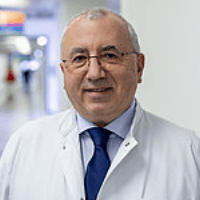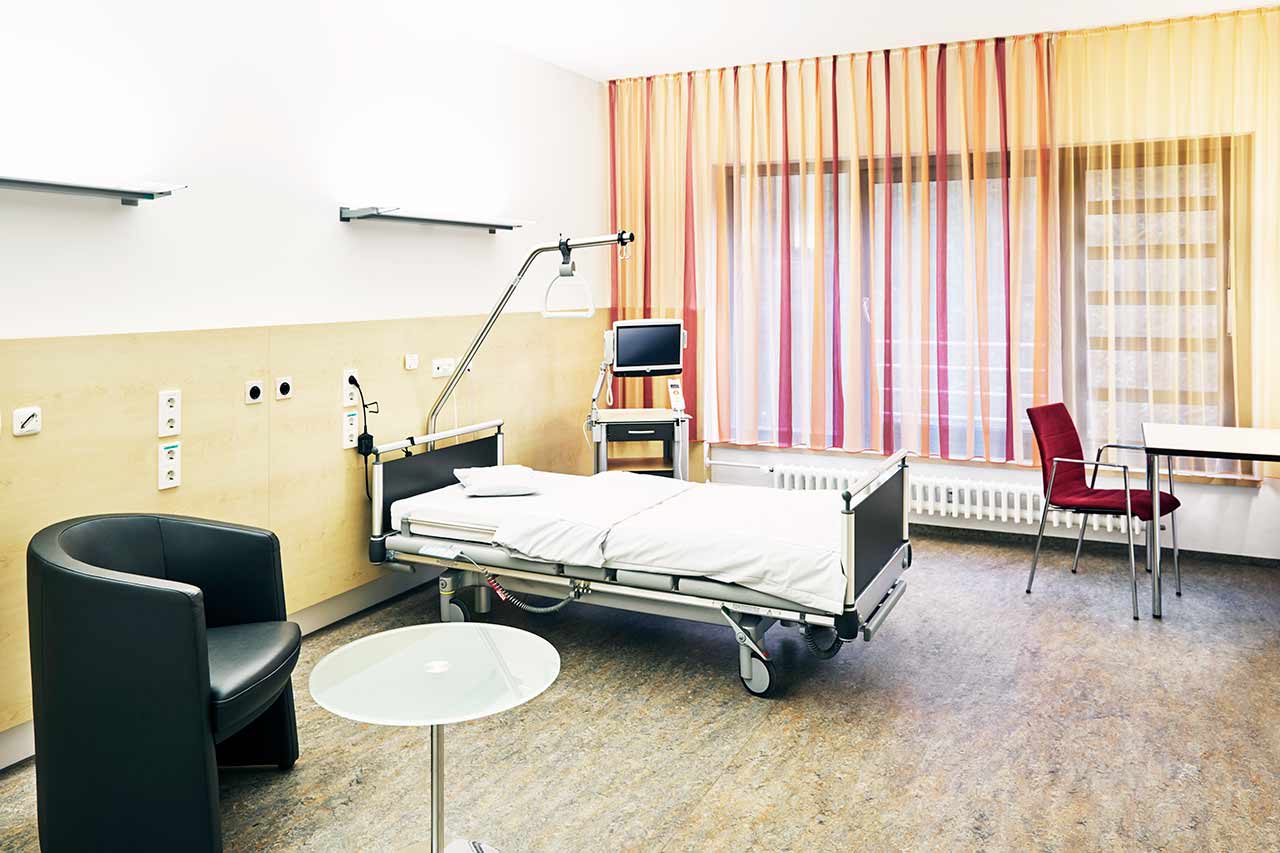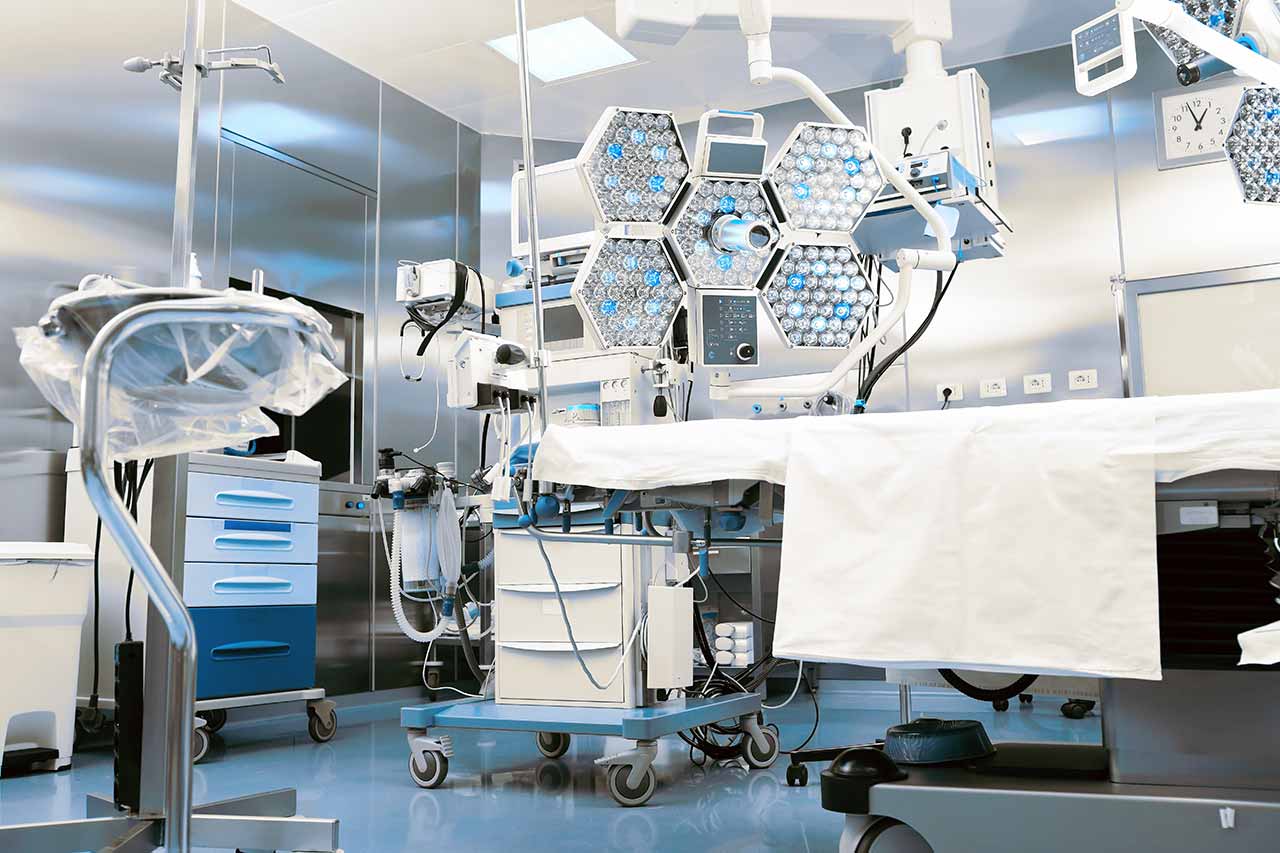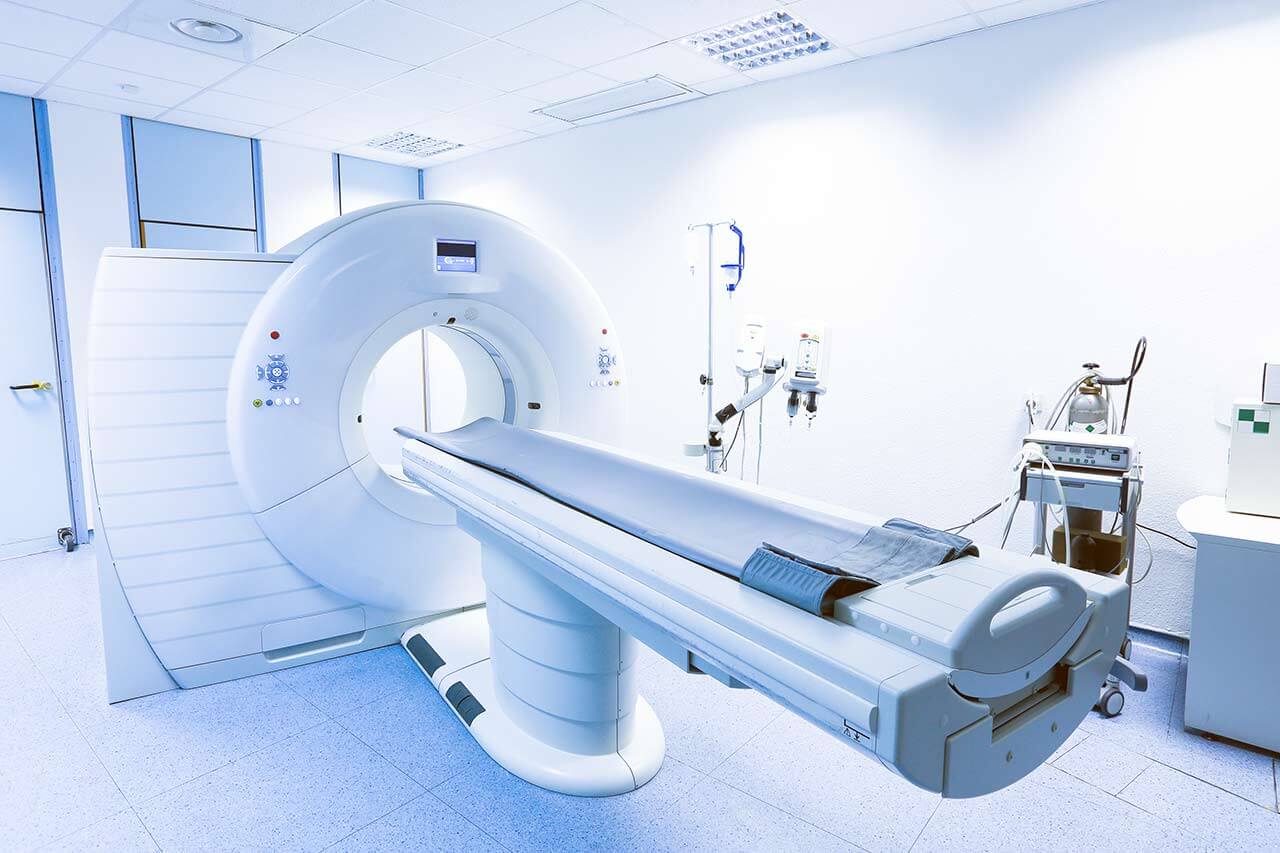
The program includes:
- Initial presentation in the clinic
- clinical history taking
- review of medical records
- physical examination
- laboratory tests:
- complete blood count
- biochemical blood analysis
- blood coagulation analysis (aPTT, PT, INR)
- inflammation indicators (CRP, ESR)
- metabolic analysis of blood
- cardiovascular disease risk markers
- kidney function test (creatinine, urea)
- color doppler echocardiography
- color doppler sonography of cerebral and peripheral vessels
- carotid artery duplex
- CT angiography (on indication 1300 €)
- MRI angiography (on indication 1300 €)
- nursing services
- consultation of related specialists
- consultation of the chief physician and all leading experts
- development of individual treatment plan
- written statement
Required documents
- Medical records
- Ultrasound scan and angiography (if available)
Service
You may also book:
 BookingHealth Price from:
BookingHealth Price from:
About the department
The Department of Vascular and Endovascular Surgery at the Hospital Kassel offers the comprehensive diagnostics and highly effective treatment of diseases of the arteries and veins according to the standards of modern European medicine. The main focus is on the treatment of diseases of the aorta, carotid arteries, occlusive diseases of the arteries and veins, as well as on the treatment of varicose veins. The Chief Physician of the department is PD Dr. med. Achim Neufang.
The department's medical team prefers sparing minimally invasive surgical techniques, which eliminate the need for large incisions, as well as severe trauma to healthy tissue. However, in some cases, the specialists have to resort to open surgery, for example, in the case of aortic aneurysm or aortic dissection. Since vascular diseases often occur due to other pathologies, the specialists from other medical disciplines, including cardiac surgeons, cardiologists, diabetologists, nephrologists and neurologists, are involved in the development of treatment tactics. Surgical interventions are performed in high-tech operating rooms equipped with all the necessary surgical instruments, imaging and computer systems. The department's surgeons strictly adhere to clinical protocols, which almost eliminates the risk of complications during or after surgery.
The department's doctors have successful experience in aortic surgery. The most common abnormalities in this spectrum include aortic aneurysm, aortic dissection, aortic stenosis and obstruction. Depending on the degree of aortic lesion and the patient's condition, the surgical procedure can be either endovascular with stent implantation or open with a total replacement of the aorta using an artificial prosthesis. Endovascular interventions are performed under local anesthesia and using imaging guidance. Open surgical interventions are performed under general anesthesia, since the surgeon needs to open the chest wall or the anterior abdominal wall to form surgical access.
Of particular interest to the department's medical team is also the restoration of normal blood flow in the vessels in the case of acute and chronic occlusions of arteries and veins in the upper and lower limbs. To eliminate circulatory disorders, the department uses such effective techniques as bypass surgery, plastic reconstruction after the removal of an obstructed area of an artery or vein, balloon dilatation and stent implantation to normalize blood circulation. Stent implantation is performed only with high-quality prostheses with a long service life.
The department's surgical service range includes:
- Classic open and endovascular surgery to treat aortic diseases
- Aortic aneurysm
- Aortic dissection
- Aortic stenosis
- Aortic obstruction
- Endovascular surgery to treat carotid artery stenosis in order to prevent stroke
- Endovascular surgery to eliminate acute and chronic occlusions of arteries and veins in the upper and lower limbs
- Bypass surgery
- Plastic reconstruction after the removal of an obstructed area of an artery or vein
- Balloon dilation
- Stent implantation
- Endovascular surgery to treat varicose veins
- Endovascular surgery to treat thrombosis
- Endovascular surgery to treat leg ulcers
- Other therapeutic options
Photo of the doctor: (c) Klinikum Kassel
About hospital
The Hospital Kassel is a progressive medical facility with a huge medical team, which provides high-quality medical services in all branches of modern medicine. The hospital is part of the regional medical Gesundheit Nordhessen Holding, which unites 5 top-class medical centers, including specialized rehabilitation clinics. With 1,281 beds, the hospital is known as the largest medical complex in the federal state of Hesse. The hospital has 32 specialized departments with highly qualified doctors and specially trained nursing staff in each department. The team of 3,200 employees takes care of the health of patients. The main value for each employee is the patient's health. The professional skills of the medical staff in combination with state-of-the-art medical and technical equipment of the hospital provide excellent opportunities for the treatment of patients with pathologies of any severity.
The hospital provides treatment to over 55,000 inpatients and about 140,000 outpatients every year. Medical care is provided to both German citizens and many patients from foreign countries. Such high rates are the evidence of excellent quality of medical services and the high credit of patients' trust.
The hospital has created a wonderful atmosphere, which contributes to the rapid recovery of patients. All diagnostic and therapeutic rooms, operating rooms, as well as patient rooms are designed taking into account modern standards of European medicine in order to ensure maximum comfort of each patient. All employees working in the hospital provide the patient with understanding and respect, as well as support him in every possible way during the entire therapeutic process.
The hospital successfully implements a quality management system. It uses its own quality management system implemented by the medical Gesundheit Nordhessen Holding, as well as the IQM (Initiative Qualitätsmedizin) monitoring system. As part of healthcare quality management, the hospital annually clearly provides reports on its clinical activities, the success of diagnostics, treatment, level of patient care, etc. Thus, the hospital stands for maximum openness in its work and makes every effort to maintain the highest level of quality of medical care.
Photo: (с) depositphotos
Accommodation in hospital
Patients rooms
The patients of the Hospital Kassel live in comfortable single, double and triple rooms. The patient rooms are made in a modern design and pastel colors. A standard patient room includes an automatically adjustable bed, a bedside table, a wardrobe, a table and chairs for receiving visitors, a TV and a telephone. The patient rooms have Wi-Fi. Each room has an ensuite bathroom with shower and toilet.
The hospital also offers enhanced-comfort patient rooms. Most of these rooms have a balcony. The bathroom additionally includes a hairdryer, towels and toiletries.
Meals and Menus
The patient and the accompanying person are offered tasty and balanced three meals a day. If for some reason you do not eat all foods, you will be offered an individual menu. Please inform the medical staff about your food preferences prior to treatment. The patients staying in enhanced-comfort rooms are provided with an individual menu every day.
The hospital also has several cafes where one can have a cup of tea or coffee, taste delicious pastries, salads, main hot dishes, pizza, etc.
Further details
Standard rooms include:
Religion
The religious services are available upon request.
Accompanying person
During the inpatient program, the accompanying person can live with the patient in a patient room or a hotel of his choice. Our managers will help you choose the most suitable option.
Hotel
During an outpatient program, the patient can stay at the hotel of his choice. Our managers will help you choose the most suitable option.





